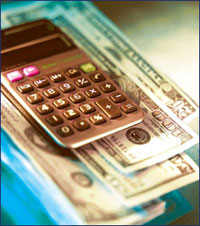Euro Tumbles to Nine-Month Low Overnight
The euro fell against the dollar on Monday, weighed down by lingering concerns about the fiscal health of Greece while recent U.S. data continued to support the dollar, though trade was quiet in a holiday-shortened week.

The single currency recovered against the Swiss franc, though, after tumbling to a nine-month low overnight when traders took advantage of thin liquidity to push it quickly through stops below 1.49 Swiss francs.
In early London trade, the franc fell sharply against the dollar and the euro, with traders saying a large dollar/Swiss franc buy order by a commercial bank triggered talk of Swiss National Bank intervention, which was unconfirmed.
"It's a thin market and people are getting very jittery about the possibility of SNB intervention," a London-based trader said, Reuters informs.
According to Wall Street Journal, some analysts reckon this will keep the dollar on the rise against the euro up into Christmas, presaging a more major rally once the new year starts.
However, Daragh Maher, deputy head of global foreign exchange strategy at Calyon Credit Agricole in London, warns that the euro still needs to sink below its 200-day moving average at $1.4184. Also, he suggested that the Fed may well end up tightening policy a lot more slowly than the market is discounting.
"The dollar may extend its rally this week, but it is beginning to feel a little stretched even for 2010 dollar bulls like ourselves," Mr. Maher said.
The Dollar Index -- which measures its performance against the euro, yen, pound, Canadian dollar, Swiss franc and Swedish krona -- dropped 4.4 percent this year. Its tendency to fall when stocks rise and vice versa, which has prevailed since Lehman’s September 2008 collapse, is breaking down.
Until Dec. 1, stocks and the Intercontinental Exchange Inc. currency gauge moved in opposite directions on seven of every 10 days this year. They’re in sync more than half the time this month, Bloomberg informs.
Subscribe to Pravda.Ru Telegram channel, Facebook, RSS!





